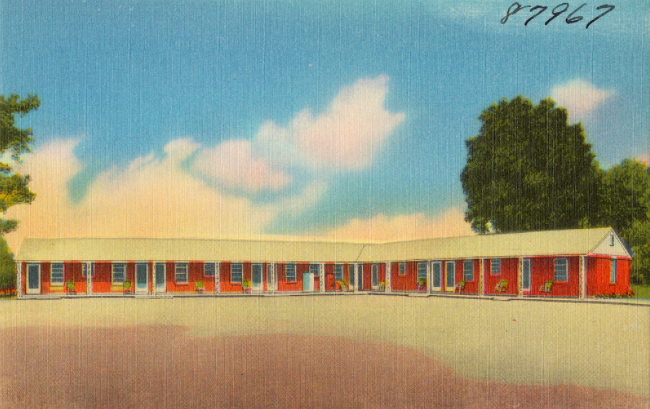I’d leave as early as I could and head north, straight up US 51 for three hours. Just a few years before, I was living in the same small Illinois town that my great-great-great grandfather, Hezekiah Gill, had come to from Tennessee, just before the outbreak of the Civil War. Then he turned around and fought for the Union, surviving the battles through Kentucky, Mississippi, his own native Tennessee, and on to Atlanta. But he returned back to Illinois, and it was there in that tiny village that my family stayed for the next 130 years.
That ended when my parents split and I went to live with my stepmother in another part of the state. I met a girl there who was ready to break from her own thread of history, and we cobbled together a plan of sorts: she, with her raw and fiery talent at the piano, had secured a scholarship to a private university up north; while I found my way back to a state school thirty miles from the territory Hezekiah Gill had first staked out.
I first noticed the Macon Motel on one of my weekend drives north. It was just twenty minutes south of her school, but it felt farther. The first time we stayed there, it was in the fall, after the treeless Illinois prairie surrounding us had been gleaned. Horizon to horizon, nothing but flat black-soiled farmland that a few weeks before held perfect rows of corn and soy.
It was there, for just twenty-eight dollars a night, that we first found a clean, well-lighted, room of our own. A single-story twenty-room motor lodge built in the postwar boom when our parents were born. Now it saw most of its business during the week when road workers and machine operators far from home stayed after long shifts of building the new four-lane just outside town. When we arrived on Saturday evenings, there were usually only one or two cars in the lot. The same middle-aged woman sat behind the front desk, shielded by plexiglass, cigarette in hand, cheerful and glad to see us.
The rooms were as stark as the fallow fields outside. White tiled bathroom walls, toilet, tub, and pedestal sink. Rough thick towels. Double bed with cotton sheets, wool blanket, and chenille bedspread. Wooden chair, dresser, lamp, and nightstand. Not beautiful or luxurious in the conventional sense, but perfect in its simplicity. In its emptiness.
Like most everything in our lives then, our pleasure was about escape. Escape from the practice rooms and recital halls, the library shelves and long nights of staring at the amber monochrome of a word processor screen. For me, it was escape from living in the poorest trailer park in town, where my neighbors ranged from former convict to alcoholic, crack dealer to plain down and out. For her, it was escape from a rustbelt city that smelled of rotting soybeans, from laid-off factory workers, gang violence, and the sounds of shouts and gunshots late into the night. For both of us, it was an escape from family histories and expectations. From fear of failure and of success. From life in the last decade of a millennium.
But the best we could do was the Macon Motel, where we spent the hours reading, or sleeping, talking, or watching PBS on the 19” TV. Slow time. Time measured by sun through the window. Then, on Sunday morning, we’d drive onto the highway to head back, clear-headed and nostalgic for a life that was not ours.
James Alan Gill has published fiction, non-fiction, and poetry in several journals including Colorado Review, Crab Orchard Review, Midwestern Gothic, Prime Number Magazine, and Atticus Review, and has work forthcoming in the anthology Being: What Makes A Man. He currently lives in Oregon.




